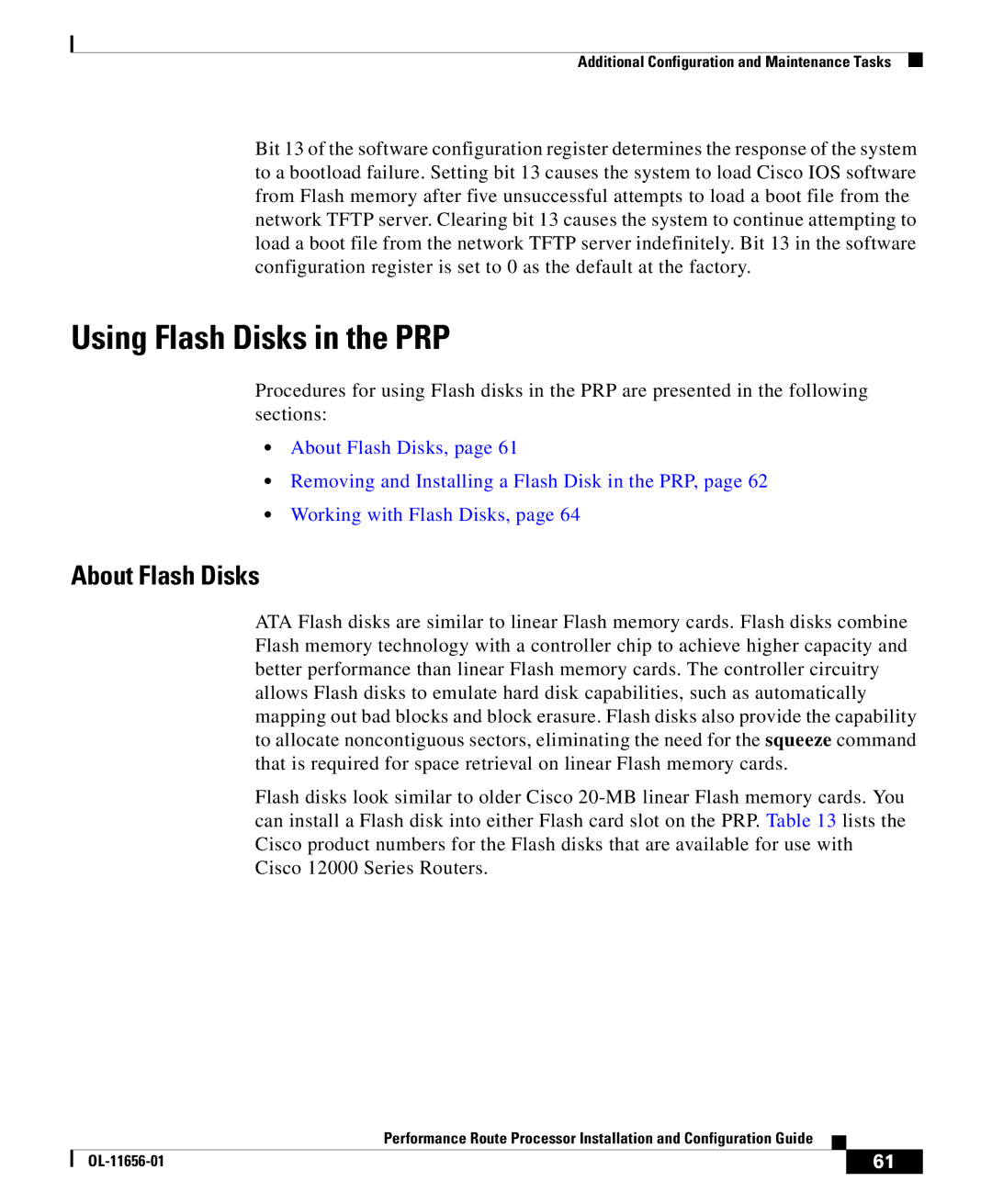Additional Configuration and Maintenance Tasks
Bit 13 of the software configuration register determines the response of the system to a bootload failure. Setting bit 13 causes the system to load Cisco IOS software from Flash memory after five unsuccessful attempts to load a boot file from the network TFTP server. Clearing bit 13 causes the system to continue attempting to load a boot file from the network TFTP server indefinitely. Bit 13 in the software configuration register is set to 0 as the default at the factory.
Using Flash Disks in the PRP
Procedures for using Flash disks in the PRP are presented in the following sections:
•About Flash Disks, page 61
•Removing and Installing a Flash Disk in the PRP, page 62
•Working with Flash Disks, page 64
About Flash Disks
ATA Flash disks are similar to linear Flash memory cards. Flash disks combine Flash memory technology with a controller chip to achieve higher capacity and better performance than linear Flash memory cards. The controller circuitry allows Flash disks to emulate hard disk capabilities, such as automatically mapping out bad blocks and block erasure. Flash disks also provide the capability to allocate noncontiguous sectors, eliminating the need for the squeeze command that is required for space retrieval on linear Flash memory cards.
Flash disks look similar to older Cisco
|
| Performance Route Processor Installation and Configuration Guide |
|
|
|
|
| ||
|
|
| 61 | |
|
|
|
